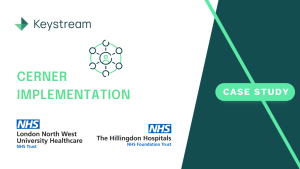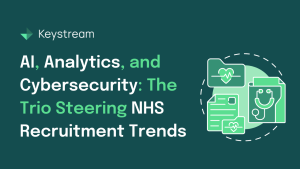15.08.2023
Addressing the Resource Shortage in EPR Implementations: An Opportunity to Innovate
Digital transformation in the NHS has gathered significant momentum over the past few years. Electronic Patient Record (EPR) system implementations are at the heart of this transformation, promising to revolutionise patient care delivery through improved efficiency, accuracy, and accessibility of health information.
However, as more and more NHS organisations embark on their EPR journey, a challenge is emerging: there is an acute shortage of experienced training resources to support these initiatives. The lack of adequate training personnel can slow down progress, impacting project timelines and affecting the smooth adoption of new systems.
While this issue might initially seem daunting, it also presents an opportunity. We can address this shortage not merely by finding more resources, but by innovatively deploying the resources we already have and bolstering them with efficient, targeted training strategies. Here are a few suggestions:
- Hold Train the Trainer Sessions Early: It has been noticed in recent ‘global model’ approaches to training by some vendors that Train the Trainer (TtT) is being delivered later and later in the project timeline. This has had and will continue to have a negative impact of the overall delivery of training, especially when the training team does not have the level of experience you may expect. Organising TtT sessions at the earliest opportunity gives the training team more time to understand and familiarise themselves with the new system. This approach also enables them to field queries and provide support more effectively when the broader workforce training begins. Being able to add context to someone’s learning experience is crucial to the programme and by giving the training workstream more time prior to the delivery of training, you are setting them up to deliver something that is aligned with expectations.
- Implement a Buddy System: Pair less experienced trainers with seasoned professionals, promoting knowledge transfer and skills development. This approach could significantly improve the competency of junior trainers, increasing the overall training capacity.
- Early Engagement of BAU Team: Including members of the Business As Usual (BAU) team from the early stages of the EPR programme can be beneficial. These individuals bring a unique perspective, understanding existing processes and workflows intimately. This knowledge can greatly enhance the quality of training delivered and ensure alignment with the ongoing needs of the organisation.
- Leverage External Training Partners: With the current resource crunch, collaborating with experienced external training partners (like Keystream Consulting) can be a valuable strategy. External partners bring a wealth of experience and best practices from across the industry, aiding in the design and delivery of effective training programmes.
- Invest in a gold standard Super User and Champion User programme: As previously discussed, well-trained and equipped Super Users and Champion Users can significantly reduce the training burden. They provide first-line support, helping their peers navigate the new system effectively. The gold standard approach, where Super Users and Champion Users are nurtured and empowered, is transformative for EPR implementations in the NHS.
This resource challenge, while significant, is not insurmountable. With strategic planning, innovative approaches, and a willingness to adapt, NHS organisations can overcome these issues. Ensuring the successful implementation and adoption of EPR systems is key to realising the full potential of digital transformation in the NHS.









